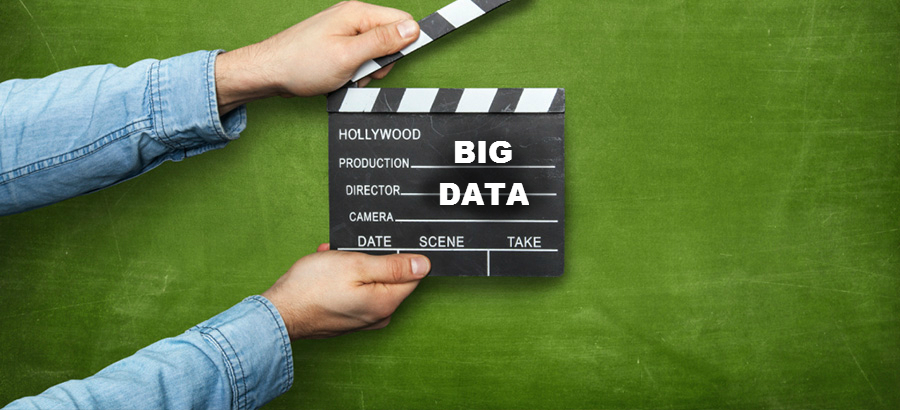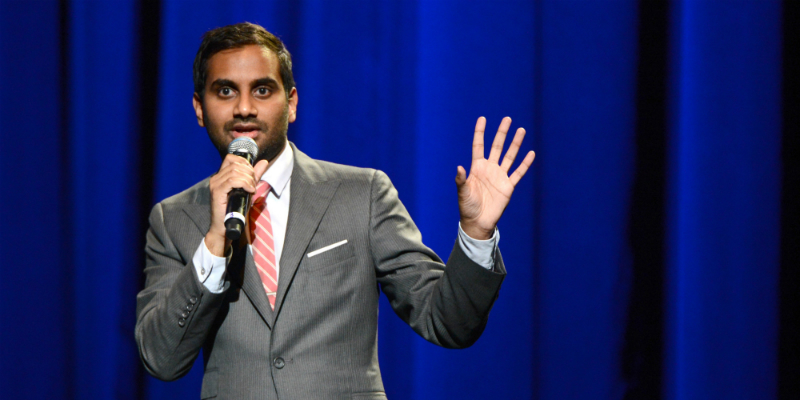- Advertising
- Bare Metal
- Bare Metal Cloud
- Benchmarks
- Big Data Benchmarks
- Big Data Experts Interviews
- Big Data Technologies
- Big Data Use Cases
- Big Data Week
- Cloud
- Data Lake as a Service
- Databases
- Dedicated Servers
- Disaster Recovery
- Features
- Fun
- GoTech World
- Hadoop
- Healthcare
- Industry Standards
- Insurance
- Linux
- News
- NoSQL
- Online Retail
- People of Bigstep
- Performance for Big Data Apps
- Press
- Press Corner
- Security
- Tech Trends
- Tutorial
- What is Big Data
Big Data is Here to Entertain You

What do comedian Aziz Ansari and Mark Zuckerberg have in common? They both understand the power of big data.
Useful Fun Data
In 2013, comedian Aziz Ansari used analytics to tailor his shows. He asked the audience to provide him with their name, age, gender, and relationship status (he also asked them nicely not to lie). In his own words:
“What if I could set up small shows to talk to very specific groups about these topics? What if I could do a show with half an audience of younger people and the other half is older married people? What if half the audience was single women over 30 and the other half was single men between 18 and 25?”
Being a professional comedian, he used this newly gained knowledge to adapt his material to the audience’s demographics. Based on their feedback, he could decide if he should pursue a particular topic or change it on the go. Basically, he was doing what any other comedian would do: observing the audience and then choosing a strategy for delivering the best joke. His case, however, is unique: he knew a lot more about his audience than your average comedian.
More recently, Facebook has released a ton of data on, believe it or not, laughing styles. Thus we have learned that “haha”(51,4%) holds precedence over “hehe” (13,1%), which holds precedence over “lol” (1,9%). Seattle trumps all other major US cities in using “haha” on their citizen’s Facebook posts. Also, we now know that people in Chicago use emojis more often than people in San Francisco or New York. While it’s not entirely clear what to do with this information, it nevertheless means that big data is steadily crawling its way into every major area and industry.
It also means that the entertainment business isn’t going to be spared. For a movie release, early Facebook reactions by Asian moviegoers can already affect the US strategy only a few hours later. After all, hundreds of millions of dollars are at stake, and you wouldn’t want to bet that much money on an empty promise. Using big data and analytics, Netflix was in the position to make Kevin Spacey an offer he couldn’t refuse:
“We believe in you. We’ve run our data and it tells us that our audience would watch this series. We don’t need you to do a pilot. How many do you wanna do?”
And Here Comes the Twist
Writing for the New Yorker, Tim Wu recalls meeting Ted Sarantos (CIO of Netflix). When asked about how much he relies on big data and predictions, Sarantos said that “it’s probably a seventy-thirty mix” (seventy being the data and thirty being human intuition and experience.) But that’s not the end of it. He also argued that “[…] the thirty needs to be on top, if it makes sense.”
It does. An experienced mind has to make sense of that mountain of data. Algorithms can handle pretty sophisticated tasks, but the entertainment business (and, most likely, every other business) will still count on the human factor.
Do you have a big data story? Why don’t you share it with us in the comments section below?
Readers also enjoyed:

Hadoopoconomics and Other Forecasted Trends for 2015



Leave a Reply
Your email address will not be published.